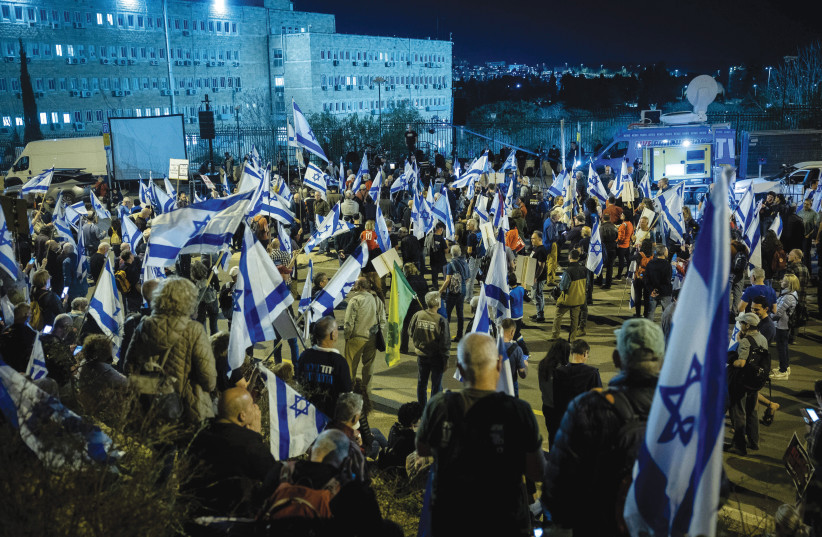With unprecedented winds going against commitment to the IDF in the midst of the judicial reform debate, IDF Human Resources Chief Maj.-Gen. Yaniv Asur tried to paint the most positive picture possible of recruitment during a visit to new recruits at Tel Hashomer near Tel Aviv.
During his Sunday visit, which was publicized only on Monday, Asur told the new recruits, “We all wear the same soldier uniform and hat. We have no other land or state and we must guard her to honor those who established the state and to honor the future generations. And now it is your turn to take upon yourselves responsibility for the security of the state.”
“If you look closely, you will see that we have much more in common and which connects and unites us, along with love and kinship, than there is which separates and divides us,” he said.
Further, he said, “The entire beautiful and broad mosaic of Israeli society is the source of our power. And we can conduct dialogues,” over difficult issues.
Those he met with included recruits to the Border Police, educational roles, various combat roles, medical roles, and others.
How has the judicial reform crisis impacted the IDF?

Despite Asur’s optimistic statements, over 10,000 IDF reservists, including around 700 air force reservists, recently announced they would quit their duties to protest the government’s judicial overhaul policies.
The IDF has not yet published updated statistics since July 28 on whether the latest spike in reservists quitting has impacted draft numbers, but in statistics released in May and partial statistics published in July, there were no such indications.
